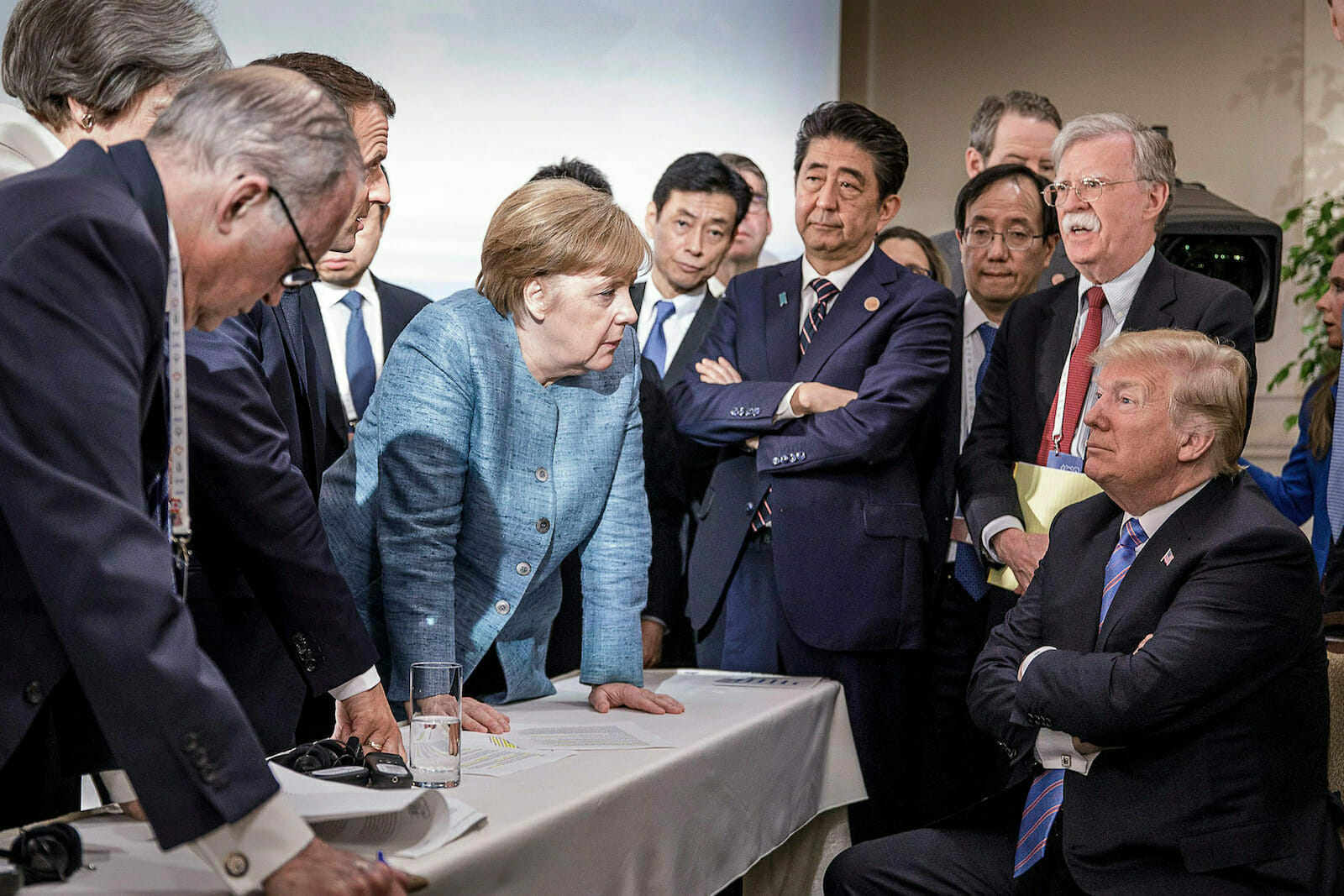
A Crisis Waiting to Happen: How Neglect of International Organizations Led to the Coronavirus Outbreak
On April 14, President Donald J. Trump announced a move that many suspected was coming: the halt of U.S. funding for the World Health Organization, marking it as another in a series of public institutions that has seen its credibility and public trust tarnished in the fallout of the coronavirus outbreak. This came as no surprise to anyone, however. For weeks, public figures and right-wing pundits have hammered at the WHO and its leadership for supposedly cooperating in the Chinese government’s attempts to hide and minimize the severity of the coronavirus pandemic unfolding within its borders. While the WHO will have a lot to answer for in the coming months in their response to the outbreak, many of the organization’s current critics have enabled the very faults that led to this crisis.
The World Health Organization is just one of many international organizations which has faced years of diminished influence and neglect in many halls of power in the West, particularly in the United States. In repeated budget proposals, the Trump administration has fought to massively cut funding to a variety of international organizations. It has withdrawn from the UN Human Rights Council and UNESCO over a perceived bias against Israel, and has even considered downgrading the position of UN ambassador to a non-cabinet position.
Specifically related to the WHO, Trump left the U.S. seat on its executive board vacant for two years, only last month announcing his appointment. In all fairness, Trump is not the first U.S. president to give short shrift to international organizations. Under George W. Bush, the UN’s role was disregarded in the decision to go to war in Iraq. President Bush similarly removed the role of UN ambassador from the cabinet while also appointing John Bolton, a well-known and vocal UN critic, to the post. President Bill Clinton, for his part, famously racked up over $1 billion in unpaid UN dues, nearly costing America its vote in the UN General Assembly.
This continued sidelining of international organizations has left them vulnerable to greater influence by rising powers, such as China. As Western governments have withdrawn from or limited their involvement with international organizations, China has risen to embrace its role as a leader, having recently gained the leadership of the Food and Agriculture Organization, the UN Department of Economic and Social Affairs, the UN Industrial Development Organization, and, most recently, a seat on a key UN Human Right Council committee, with additional ambition to also lead UN peacekeeping efforts. Without a counterweight against states like China, the U.S. and other Western states will continue to see bodies like the WHO shaped and molded by states which will use them for their own purposes.
Beyond the political ramifications of the West’s treatment of international organizations, these organizations also face a weakness that leaves them open to the very manipulation for which they are now being criticized. By limiting the overall independence of international organizations, states have left groups like the WHO reliant on data and access given to them by member states to do their work. In the early days of the coronavirus outbreak, the WHO largely parroted Chinese government talking points because that is largely all the data that they had access to. Even when an independent team was sent to Wuhan to assess the outbreak, they were accompanied by Chinese state officials, and their findings relied heavily on Chinese data. WHO officials were likely hesitant to push back on or criticize the Chinese response as this would have likely meant even more limited access to data and restrictions on assistance that they could provide to those suffering from the disease.
These are the sort of challenges presented when international organizations are less independent and can only accomplish their goals within the parameters set by host countries. And this is not even the first time that the WHO has faced these sorts of challenges. During the early days of the Ebola outbreak in 2014, pressure from West African nations resulted in a similarly slow-walked response to the growing health crisis in the region.
This lack of independence for international organizations is not a new phenomenon, but instead part of their foundational character. After World War II, the UN, and its accompanying organizations, were made intrinsically deferential towards states. When former Secretary-General Boutros Boutros-Ghali pressed for a more independent and involved UN in his report “An Agenda For Peace,” he was resoundingly rejected by the U.S., and his candidacy for a second term as secretary-general was vetoed, the only candidate to have ever been blocked. This has resulted in the UN increasingly shying away from conflicts with member states, with the most recent secretary-general, António Guterres, facing criticism from former UN officials for seemingly backing down on human rights in the face of opposition from offending states.
Trump himself has even pushed this state-centric approach in his fight against international organizations. In pulling out of the Paris Climate Accord, the president derided it as a violation of American sovereignty. When the International Criminal Court attempted to conduct interviews related to opening an investigation of possible war crimes in Afghanistan, the Trump administration threatened visas for all ICC personnel if they continued to pursue investigations against the U.S. or its allies, while promising possible additional sanctions. More open and democratic governments need to recognize that the same structures that they take advantage of in their foreign policy can be used similarly by less open and more repressive regimes, not always to the betterment of the international community.
So, rather than calling for investigations or threatening to withhold funds, world leaders need to look at the fundamental failings of international organizations that contributed to the mishandling of this global outbreak, and how they may have contributed to it. This is a problem that will continue to reappear during crisis after crisis. The IAEA may fall short during the next Chernobyl-type event. The Human Rights Council may stand by the wayside as a regime carries out genocide. Another pandemic may rise and catch us similarly off guard. In the face of these possible threats, global leaders must either seriously reexamine the role that international organizations play in the world order and sufficiently fund, support, and empower them to accomplish their important work, or own the flaws within the current system and honestly accept the inherent risk that comes with them.

